December 29 stands as one of history’s most eventful days, witnessing the rise and fall of empires, groundbreaking discoveries, and moments that shaped our modern world across centuries of human achievement.

Politics and Government Events on December 29
1911 – Mongolia Gains Independence from Qing Dynasty
The Mongolian revolution succeeded in overthrowing Chinese rule on this historic date. Revolutionary leaders enthroned the 8th Jebtsundamba Khutughtu as Khagan of Mongolia, establishing a theocratic state.
This independence movement marked Mongolia’s first step toward modern nationhood after centuries of foreign domination. The new government would face immediate challenges from both Chinese and Russian imperial ambitions.
1930 – Muhammad Iqbal’s Presidential Address Introduces Two-Nation Theory
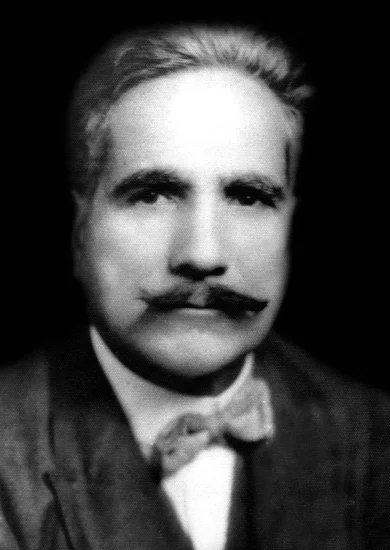
Sir Muhammad Iqbal delivered his groundbreaking presidential address to the All-India Muslim League in Allahabad. His speech articulated the philosophical foundation for Pakistan’s eventual creation through the two-nation theory.
Iqbal’s vision called for separate Muslim-majority states within the Indian subcontinent. This address became the intellectual cornerstone of the Pakistan movement that would reshape South Asian politics.
1937 – Irish Free State Becomes Ireland
The Irish Free State officially transformed into the sovereign state of Ireland with its new constitution taking effect. This constitutional change marked Ireland’s final step toward complete independence from Britain.
The new constitution established Ireland as a republic in all but name, removing most remaining British constitutional connections. This political evolution completed the process begun with the 1916 Easter Rising.
1989 – Václav Havel Elected President of Czechoslovakia

Czech writer and dissident Václav Havel won election as Czechoslovakia’s first post-communist president. His peaceful transition from political prisoner to national leader symbolized the Velvet Revolution’s remarkable success.
Havel’s presidency marked the end of four decades of communist rule in Czechoslovakia. The playwright-turned-politician would guide the nation through its democratic transformation and eventual peaceful division.
1992 – Brazilian President Fernando Collor Faces Impeachment
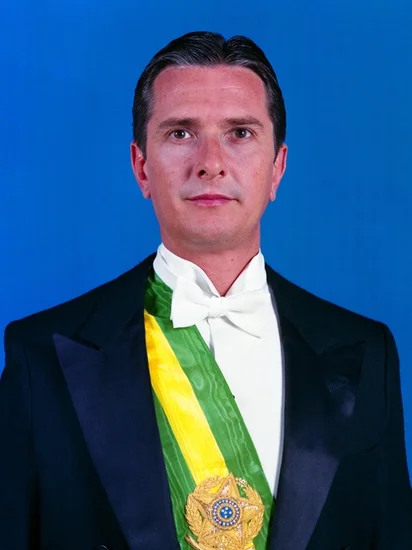
Fernando Collor de Mello attempted to resign as Brazil’s president amid mounting corruption charges. The Brazilian Congress proceeded with impeachment proceedings despite his resignation attempt.
This political crisis marked a crucial test for Brazil’s young democracy after decades of military rule. Collor’s downfall demonstrated the strength of Brazilian democratic institutions and the rule of law.
1996 – Guatemala Signs Peace Accord Ending Civil War
The Guatemalan government and rebel forces signed a comprehensive peace agreement ending 36 years of devastating civil war. This historic accord brought hope to a nation torn apart by violence and political repression.
The peace process addressed fundamental issues including indigenous rights, land reform, and military restructuring. Over 200,000 people had died during the conflict, making this agreement crucial for national healing.
Military and Naval History on December 29
1934 – Japan Renounces Naval Treaties
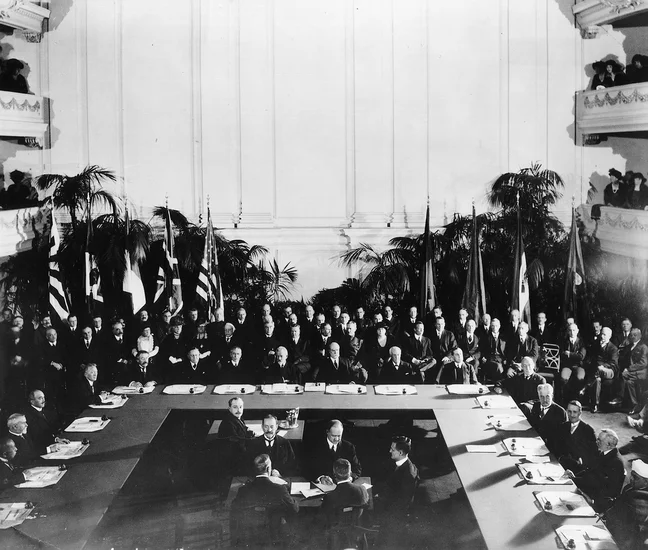
Japan officially withdrew from the Washington Naval Treaty and London Naval Treaty, signaling its military ambitions. This decision freed Japanese naval expansion from international constraints imposed after World War I.
The treaty denunciation marked Japan’s shift toward aggressive militarism in the Pacific region. This strategic move presaged the naval arms race that would culminate in World War II.
1940 – Second Great Fire of London
The German Luftwaffe launched a devastating firebombing campaign against London during World War II. Nearly 200 civilians perished in the intense aerial bombardment that ravaged the historic city center.
The attack targeted London’s financial district and historic landmarks with thousands of incendiary bombs. British firefighters and civilians showed remarkable courage battling the flames that threatened to consume central London.
1998 – Khmer Rouge Leaders Apologize for Cambodian Genocide
Former Khmer Rouge commanders issued their first public apology for the genocidal regime that killed over one million Cambodians. This unprecedented acknowledgment came after decades of denial and international pressure.
The apology marked a significant moment in Cambodia’s long struggle for justice and reconciliation. Survivors and families of victims had waited over twenty years for this admission of responsibility.
Science and Discovery Milestones on December 29
2003 – Last Akkala Sami Speaker Dies
The final native speaker of Akkala Sami passed away, rendering this ancient language extinct forever. This linguistic death represented the irreversible loss of centuries of cultural knowledge and oral tradition.
Akkala Sami had been spoken by indigenous people in Russia’s Kola Peninsula for generations. The language’s extinction highlighted the urgent need for global efforts to preserve endangered languages and cultures.
2019 – Major Earthquake Strikes Croatia
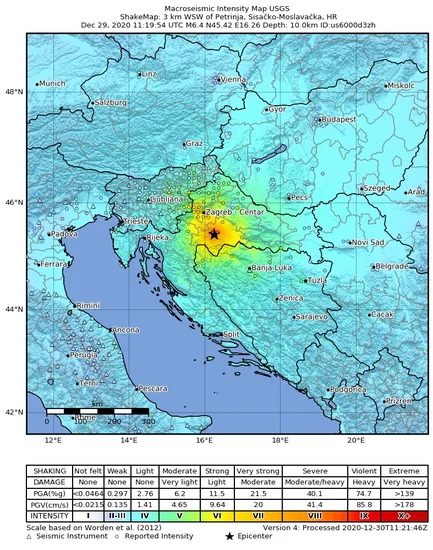
A powerful 6.4 magnitude earthquake devastated the town of Petrinja in Croatia’s Sisak-Moslavina County. Seven people lost their lives as buildings collapsed and infrastructure suffered widespread damage.
The earthquake represented one of Croatia’s most significant natural disasters in recent history. Emergency responders worked tirelessly to rescue survivors trapped beneath the rubble of damaged structures.
2013 – Michael Schumacher Skiing Accident
Seven-time Formula One champion Michael Schumacher suffered severe head trauma while skiing in the French Alps. The accident occurred at the Méribel ski resort, forever changing the legendary driver’s life.
Schumacher’s accident shocked the motorsport world and highlighted the inherent risks of recreational skiing. The incident marked a tragic end to one of racing’s most celebrated careers.
Cultural and Arts Events on December 29
1913 – Cecil B. DeMille Begins First Hollywood Feature Film
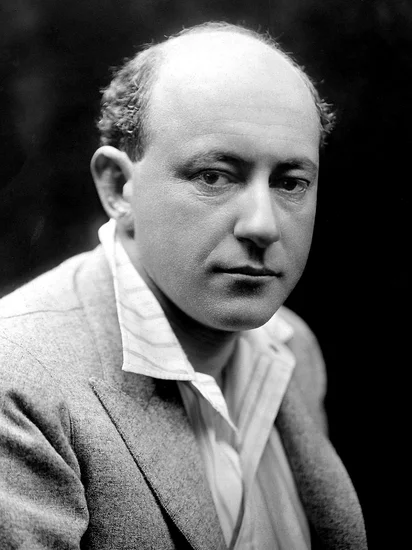
Legendary director Cecil B. DeMille started filming “The Squaw Man,” Hollywood’s first full-length feature film. This groundbreaking production established Hollywood as America’s emerging center for motion picture entertainment.
DeMille’s ambitious project marked the beginning of Hollywood’s transformation from orange groves to entertainment capital. The film’s success proved that American audiences would embrace longer, more sophisticated cinematic storytelling.
1972 – Eastern Air Lines Flight 401 Crashes

Eastern Air Lines Flight 401 crashed into Florida’s Everglades while approaching Miami International Airport. The Lockheed L-1011 TriStar accident claimed 101 lives among the 176 people aboard.
The crash investigation revealed how cockpit distraction and automation confusion contributed to the tragedy. This accident led to significant improvements in airline safety protocols and pilot training procedures.
1975 – LaGuardia Airport Bombing

A terrorist bomb exploded at New York’s LaGuardia Airport, killing 11 people and injuring over 75 others. The attack shocked Americans and highlighted the vulnerability of civilian aviation infrastructure.
The bombing prompted enhanced security measures at airports nationwide and increased awareness of domestic terrorism threats. Despite extensive investigations, the perpetrators were never definitively identified or prosecuted.
Religious and Social Events on December 29
1972 – Eastern Air Lines Flight 401 Memorial

The tragic crash of Eastern Air Lines Flight 401 in the Florida Everglades became a defining moment for aviation safety. This accident prompted major changes in cockpit resource management and pilot training protocols.
The disaster highlighted the dangerous combination of mechanical problems and human error in aviation. Families of victims worked tirelessly to ensure that safety improvements would prevent similar tragedies.
1989 – Czechoslovakia’s Velvet Revolution Triumph

Václav Havel’s election as president represented the peaceful triumph of democratic forces over communist authoritarianism. His moral authority as a former political prisoner inspired millions across Eastern Europe.
The Velvet Revolution demonstrated how nonviolent resistance could topple seemingly invincible totalitarian regimes. Havel’s presidency symbolized hope for human rights and democratic values worldwide.
1998 – Khmer Rouge Genocide Acknowledgment
The historic apology by Khmer Rouge leaders marked a crucial step in Cambodia’s healing process. This admission of responsibility came after decades of denial about the regime’s brutal crimes.
Survivors of the Cambodian genocide finally received acknowledgment of their suffering from the perpetrators themselves. The apology opened pathways for justice and national reconciliation after years of impunity.
Business and Economic Events on December 29
1989 – Nikkei 225 Reaches All-Time High
The Tokyo Stock Exchange’s Nikkei 225 index hit its historic peak of 38,957.44 during intraday trading. This astronomical valuation represented the absolute apex of Japan’s devastating asset price bubble.
The record-breaking close at 38,915.87 marked the culmination of speculative mania that had gripped Japanese markets. This peak preceded Japan’s “Lost Decade” of economic stagnation and deflation.
2006 – UK Settles Post-WWII Loan Debt
The United Kingdom made its final payment on the Anglo-American loan received after World War II. This historic debt settlement closed a financial chapter that had lasted over sixty years.
The loan repayment symbolized Britain’s economic recovery from wartime devastation and financial exhaustion. This milestone marked the end of Britain’s dependence on American financial assistance.
2013 – Volgograd Railway Station Bombing

A suicide bomber attacked the crowded Volgograd-1 railway station in southern Russia, killing 18 people. The terrorist attack wounded 40 others and created widespread panic among travelers.
The bombing highlighted Russia’s ongoing security challenges and the threat of domestic terrorism. The attack occurred during a period of heightened tensions in the North Caucasus region.
Transportation and Infrastructure on December 29
1994 – Turkish Airlines Flight 278 Crashes

Turkish Airlines Flight 278, a Boeing 737-400, crashed while approaching Van Ferit Melen Airport in Turkey. The accident killed 57 of the 76 people aboard during the challenging mountain approach.
The crash investigation revealed the difficulties of operating in Turkey’s mountainous terrain and challenging weather conditions. This tragedy led to improved safety protocols for flights in similar geographic areas.
2012 – Tupolev Tu-204 Crashes at Moscow Airport
A Tupolev Tu-204 airliner overshot the runway at Moscow’s Vnukovo International Airport and crashed into a highway. Five people died and three others suffered critical injuries in the dramatic accident.
The crash occurred between the airport perimeter and the busy M3 highway, creating a spectacular scene. Investigation revealed problems with the aircraft’s braking system and pilot response procedures.
2024 – Jeju Air Flight 2216 Disaster

Jeju Air Flight 2216 crashed into a wall at Muan Airport in South Korea, killing 179 of 181 occupants. This tragedy became the worst aircraft accident in South Korean aviation history.
The devastating crash shocked the nation and prompted immediate investigations into airport safety infrastructure. The high casualty rate highlighted the deadly consequences of runway overruns and inadequate safety barriers.
Sports and Recreation on December 29
2013 – Michael Schumacher Skiing Accident
Formula One legend Michael Schumacher suffered life-changing head injuries while skiing in the French Alps. The seven-time world champion’s accident occurred at the Méribel ski resort during a family vacation.
Schumacher’s tragic accident brought global attention to skiing safety and the risks faced by recreational skiers. The incident marked the end of public appearances for one of motorsport’s greatest champions.
1989 – Japanese Stock Market Peak
The Tokyo Stock Exchange celebrated its historic peak as the Nikkei 225 reached unprecedented heights. This financial milestone coincided with Japan’s economic dominance and global influence.
The stock market’s record performance reflected Japan’s emergence as a global economic superpower. However, this peak also marked the beginning of one of history’s most dramatic market corrections.
2019 – Croatian Earthquake Response

Emergency responders and rescue teams mobilized quickly after the devastating earthquake near Petrinja, Croatia. The disaster prompted an outpouring of international solidarity and humanitarian assistance.
The earthquake’s impact on local communities demonstrated the importance of emergency preparedness and rapid response capabilities. Croatian authorities coordinated extensive rescue and relief operations for affected residents.
Notable Births on December 29
1936 – Mary Tyler Moore, American Actress

Mary Tyler Moore entered the world in Brooklyn, New York, destined to become television’s most beloved star. Her childhood performances in local theater productions hinted at her future entertainment career.
Moore revolutionized television comedy with her groundbreaking sitcoms and independent female characters. Her influence on American popular culture extended far beyond entertainment into social activism and women’s rights.
1945 – Jon Voight, American Actor
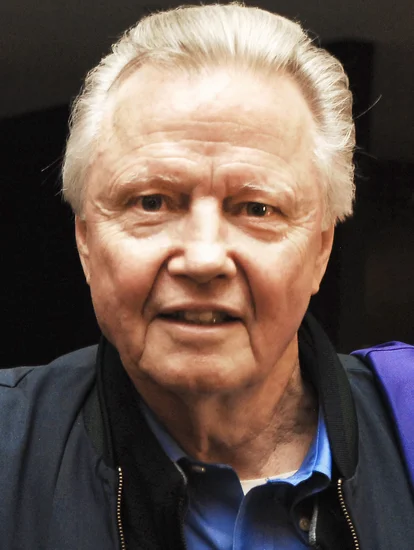
Jon Voight was born in Yonkers, New York, to parents who encouraged his artistic ambitions. His early fascination with drama and storytelling shaped his future Academy Award-winning career.
Voight’s powerful performances in films like “Coming Home” and “Midnight Cowboy” established him as one of America’s finest actors. His versatility and emotional depth made him a respected figure in Hollywood for decades.
1947 – Ted Danson, American Actor
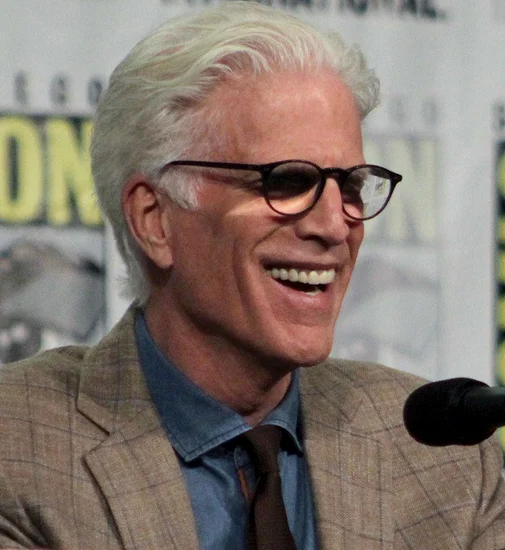
Ted Danson was born in San Diego, California, where he developed his love for performance and comedy. His college theater experiences at Stanford University prepared him for his eventual television stardom.
Danson’s portrayal of Sam Malone in “Cheers” made him one of television’s most recognizable faces. His career spanning decades demonstrates remarkable longevity and adaptability in the entertainment industry.
1960 – Jude Law, English Actor
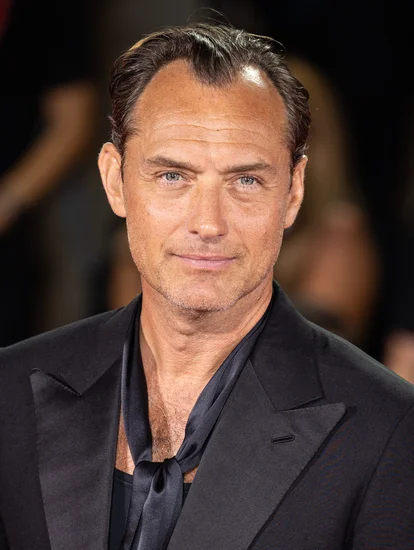
Jude Law was born in Lewisham, London, to teachers who nurtured his creative talents from an early age. His natural charisma and acting ability became evident during his teenage years.
Law’s breakthrough performances in British theater led to international film stardom and multiple award nominations. His versatility across genres established him as one of Britain’s most accomplished contemporary actors.
1972 – Jude Law, English Actor

Jude Law was born in Lewisham, London, to teachers who nurtured his creative talents from an early age. His natural charisma and acting ability became evident during his teenage years.
Law’s breakthrough performances in British theater led to international film stardom and multiple award nominations. His versatility across genres established him as one of Britain’s most accomplished contemporary actors.
1979 – Diego Luna, Mexican Actor
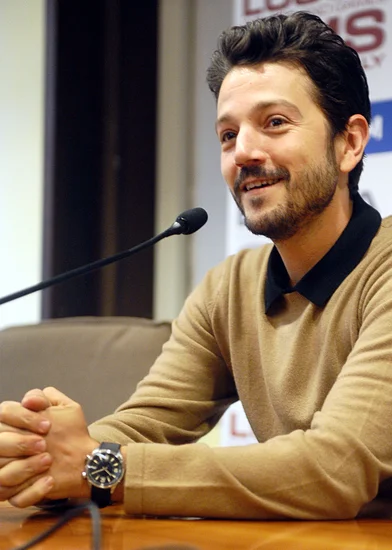
Diego Luna was born in Mexico City to a renowned theater designer and costume designer. His artistic family background provided early exposure to the entertainment industry’s creative processes.
Luna’s performances in both Mexican and Hollywood productions made him an international star and cultural ambassador. His work as actor, director, and producer has elevated Mexican cinema’s global recognition.
Notable Deaths on December 29
1926 – Rainer Maria Rilke, Austrian Poet
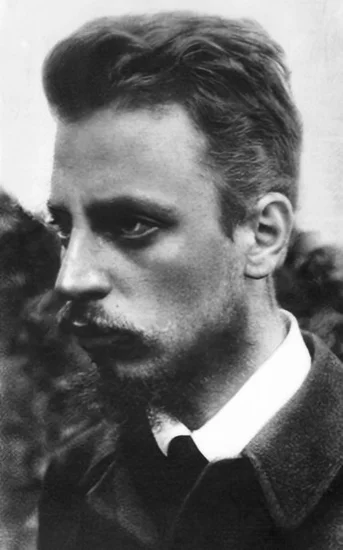
Rainer Maria Rilke died in Switzerland, leaving behind a literary legacy that transformed modern poetry. His profound explorations of human existence and spiritual longing influenced generations of writers.
Rilke’s “Letters to a Young Poet” and “Duino Elegies” established him as one of literature’s most important voices. His death marked the end of an era in German-language poetry and European literary culture.
1940 – Stephen Birch, American Businessman

Stephen Birch passed away after building one of America’s most successful mining empires. His entrepreneurial vision and business acumen helped develop Alaska’s vast mineral resources.
Birch’s legacy included the development of major copper mining operations that contributed significantly to American industrial growth. His death marked the end of an era in American mining and resource development.
1967 – Paul Whiteman, American Conductor

Paul Whiteman died in Pennsylvania, concluding a career that earned him the title “King of Jazz.” His orchestra popularized jazz music among mainstream American audiences during the 1920s.
Whiteman’s arrangements and performances helped bridge the gap between classical and popular music. His death marked the end of an important chapter in American music history and cultural development.
1986 – Harold Macmillan, British Prime Minister

Harold Macmillan died at age 92, having served as one of Britain’s most influential twentieth-century leaders. His tenure as Prime Minister guided Britain through crucial Cold War developments.
Macmillan’s political career spanned both world wars and the decolonization era. His death marked the passing of the last generation of British leaders who had experienced the empire’s greatest extent.
2022 – Pelé, Brazilian Footballer

Pelé died in São Paulo, Brazil, ending the life of football’s most legendary figure. His three World Cup victories and extraordinary skill made him a global icon transcending sports.
Pelé’s death prompted worldwide mourning and celebration of his unparalleled contributions to football. His legacy as “The King” of football will inspire future generations of athletes and fans.
2022 – Vivienne Westwood, English Fashion Designer
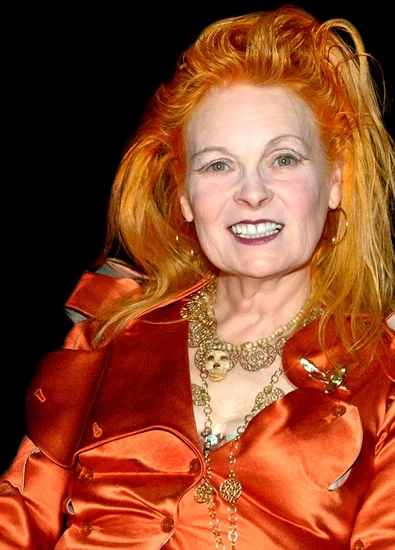
Vivienne Westwood died in London, leaving behind a revolutionary legacy in fashion and punk culture. Her designs challenged conventional fashion norms and expressed rebellious political statements.
Westwood’s influence extended beyond fashion into environmental activism and social commentary. Her death marked the end of one of fashion’s most provocative and influential creative voices.
Holidays and Observances on December 29
Constitution Day (Ireland)
Ireland celebrates Constitution Day on December 29th, commemorating the adoption of its 1937 constitution. This historic document established Ireland as a sovereign, independent republic with democratic institutions.
The constitution marked Ireland’s final step toward complete independence from British rule. Irish citizens celebrate this day by reflecting on their democratic heritage and constitutional rights.
Independence Day (Mongolia)
Mongolia observes Independence Day on December 29th, marking its 1911 liberation from Chinese rule. This national holiday celebrates the establishment of Mongolian sovereignty and cultural identity.
The independence declaration established Mongolia as a theocratic state under the Jebtsundamba Khutughtu. Modern Mongolians honor this day as the foundation of their national independence and democratic development.
Fifth Day of Christmas (Western Christianity)
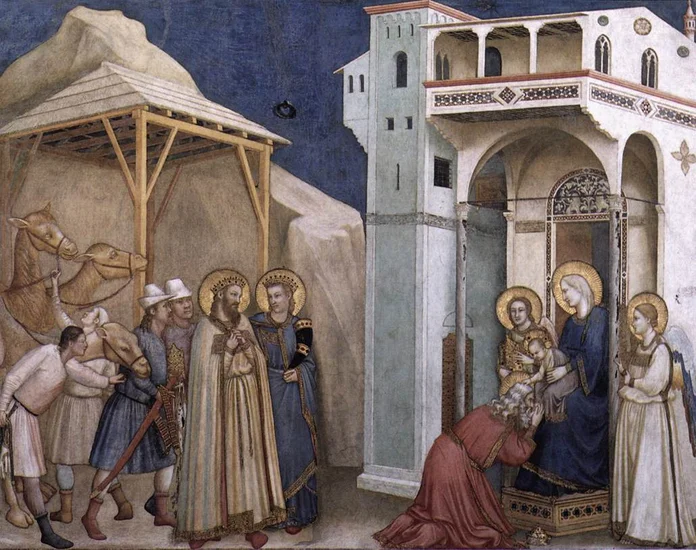
Western Christian churches observe the fifth day of Christmas on December 29th, continuing the traditional twelve-day celebration. This period emphasizes joy, family gathering, and spiritual reflection.
The Christmas season extends from December 25th through January 6th, with each day holding special significance. Many Christians use this time for charitable giving and community service activities.
